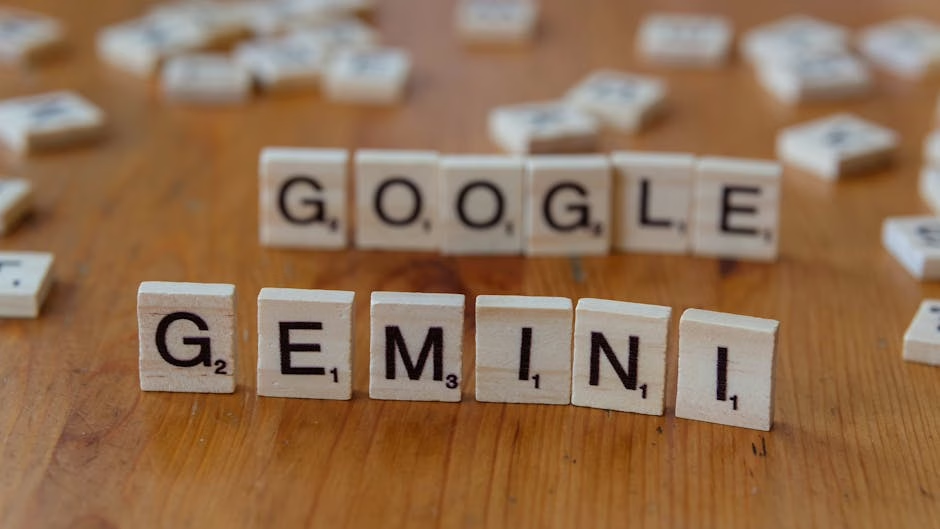Alphabet Inc. Unveils AI-Driven Search Mode with Gemini 2.0
Google’s parent company, Alphabet Inc., is taking a significant leap forward in the evolution of search technology with the introduction of an AI-driven search mode powered by Gemini 2.0, marking a pivotal moment in the company’s strategy to integrate advanced artificial intelligence into its core products.
Google Finally Adds AI Search
After months of speculation and growing competition in the AI space, Google has officially announced the integration of its Gemini AI model into the search experience. This move represents the company’s most substantial update to its search functionality in years, as it shifts from traditional keyword-based results to more conversational, AI-powered interactions.
The new search mode leverages Gemini 2.0, Google’s latest large language model (LLM), which has demonstrated significant improvements in reasoning capabilities, contextual understanding, and overall performance compared to its predecessors.
Gemini 2.0: Deep Dive into New Capabilities
Gemini 2.0 brings several advanced features to Google’s ecosystem, with particular emphasis on code execution and text embedding capabilities. According to a recent post on Google’s developer blog, the model offers state-of-the-art text embedding via the Gemini API, enabling more sophisticated understanding and processing of textual information.
One of the most notable aspects of Gemini 2.0 is its enhanced code execution abilities. The model can now interpret, generate, and debug code more effectively, making it a powerful tool for developers. This represents a significant improvement over previous versions and positions Google competitively against other AI platforms focused on coding assistance.
“The Gemini embedding text model now available via the Gemini API provides developers with cutting-edge capabilities for various applications,” noted a Google spokesperson in their announcement.
The AI Search Landscape
Google’s move comes amid increasing competition in the AI-enhanced search market. Claude, developed by Anthropic, recently announced its web search capability as a feature preview, while Microsoft has been aggressively integrating AI into its Bing search engine through its partnership with OpenAI.
The timing is particularly notable as OpenAI has just released GPT-4.5, which has shown impressive performance across various benchmarks. According to data from LMArena, GPT-4.5 has demonstrated superior capabilities in multiple categories, though Google’s Gemini 2.0 is expected to be highly competitive in specific domains.
Microsoft, meanwhile, has announced that Copilot users will receive free, unlimited access to the o3-mini-high model, further intensifying competition in the AI assistant space.
Implications for Users and the Industry
For users, the introduction of AI-driven search represents a fundamental shift in how information is accessed and processed online. Rather than scrolling through pages of results, users can engage in more natural conversations with the search engine, receiving more contextual and personalized responses.
“This isn’t just an incremental improvement to search; it’s a reimagining of how people interact with information online,” explained a technology analyst familiar with Google’s strategy. “The ability to have a conversation with your search engine, ask follow-up questions, and receive synthesized information rather than just links represents a significant evolution.”
For the industry, Google’s move signals an acceleration of AI integration into mainstream products. Companies across various sectors are likely to follow suit, incorporating more sophisticated AI capabilities into their offerings to remain competitive.
Technical Foundation and Infrastructure
Behind the scenes, Google’s AI search mode is powered by an impressive technical infrastructure. The company has been investing heavily in specialized hardware, including custom-designed AI chips, to support the computational demands of running advanced models like Gemini 2.0 at scale.
The model itself builds upon Google’s research in transformer architectures and has been trained on a diverse dataset to ensure broad knowledge coverage and reduced biases. The company has also implemented systems to mitigate hallucinations—a common issue where AI models generate plausible but factually incorrect information.
Future Developments
Google’s roadmap suggests that this is just the beginning of a more comprehensive AI integration strategy. Future updates are expected to enhance multimodal capabilities, allowing the search engine to process and understand images, audio, and video more effectively.
The company is also working on improving the model’s reasoning abilities, particularly for complex queries that require multi-step thinking or specialized domain knowledge.
Competitive Landscape
As Google rolls out its AI search mode, the competitive landscape in AI-powered search continues to evolve rapidly. OpenAI’s GPT-4.5 has shown impressive performance on benchmarks, while Claude’s web search feature and Microsoft’s Copilot enhancements represent significant competitive offerings.
Chinese companies are also making strides in this space, with DeepSeek and other firms developing sophisticated AI models that could potentially challenge Western dominance in certain markets.
Conclusion
Google’s introduction of an AI-driven search mode powered by Gemini 2.0 represents a significant milestone in the evolution of search technology. As AI capabilities continue to advance at a rapid pace, we can expect further transformations in how we access and interact with information online. The competition between major players like Google, Microsoft, OpenAI, and Anthropic will likely drive continued innovation in this space, ultimately benefiting users through more intuitive, efficient, and personalized search experiences.
Sources
- Google’s Imagen 3 Model is Insane – Reddit Singularity
- Google finally adding AI search. – Reddit Singularity
- State-of-the-art text embedding via the Gemini API – Reddit Singularity
- Gemini 2.0 Deep Dive: Code Execution – Reddit Singularity
- Stanford NLP Group Founder and early Transformer LLM researcher Professor Christopher Manning: “Large Language Models in 2025 – How Much Understanding and Intelligence?” (40 minutes) – Reddit Singularity
- What are all other free AI chat applications are out now? This post has information about ChatGPT, Claude, Le Chat, DeepSeek, Gemini studio, Poe. – Reddit Singularity
- gpt-4.5-preview dominates long context comprehension over 3.7 sonnet, deepseek, gemini [overall long context performance by llms is not good] – Reddit Singularity
- Playing Super Mario with LLMs as a benchmark by Hao AI Lab – Reddit Singularity
- Can an LLM convert C, to ASM to specs and then to a working Z/80 Speccy tape? Yes. – Reddit Singularity


